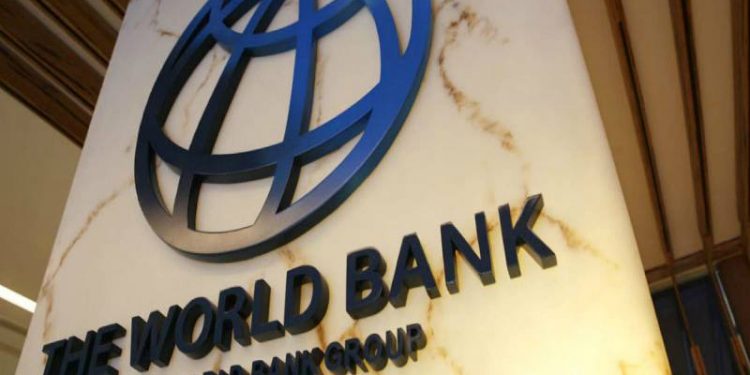Four paths to respond to the food price crisis
As the devastating war in Ukraine rages on causing untold suffering, its impact is being felt far beyond its borders, battering a world emerging from a pandemic that has hit developing countries hardest. Among the most critical is the food price crisis, calling into question the affordability and availability of wheat and other essential staples.
There is no downplaying the blow that the war has dealt to food systems, already fragile from two years of COVID-19 disruptions, climate extremes, currency devaluations, and worsening fiscal constraints. Because Ukraine and Russia account for over a quarter of the world’s annual wheat sales, the war has led to a significant rise in the price of food, not only wheat but barley, maize, and edible oil among others exported by these two countries.
Global and domestic food prices were already close to all-time highs before the war, and a large question mark looms over the next seasons’ harvests worldwide due to the sharp increase in fertilizer prices as well.
“Whether we succeed in managing food price volatility and navigating our way out of this new crisis depends on national policies and global cooperation.”
As worrying as these trends are, this is no time to panic. Here is a fact which may surprise you: Global stocks of rice, wheat, and maize – the world’s three major staples – remain historically high.
For wheat, the commodity most affected by the war, stocks remain well above levels during the 2007-2008 food price crisis. Estimates also suggest that about three-quarters of Russian and Ukrainian wheat exports had already been delivered before the war started.
Whether we succeed in managing food price volatility and navigating our way out of this new crisis depends on national policies and global cooperation. Unfortunately, this is not the first time that we have confronted a food crisis.
I’m reminded of the lessons learned during the 2007-2008 global food crisis, which was originally the result of drought and soaring oil prices. When large food-producing countries restricted exports out of concern for their domestic food supply, this exacerbated price increases and worsened malnutrition, particularly for children.
We must not make the same mistake. By contrast, at the beginning of the COVID-19 pandemic, countries kept food trade flowing even as lockdowns affected ports, freight, and labor mobility. This cooperative behavior helped limit disruptions to global food supply chains and avoided making a bad situation worse, thereby benefiting all countries.
Read: 4 key forecasts for Africa’s auto sales industry
Such evidence and experience must be our guide, to balance immediate crisis response, with the long, hard road ahead to build a more resilient food system that protects people against shocks. For countries and the international community, I see four priorities :
First, keep food trade open. Learning from experience, countries and international organizations must again stand united in their commitment to keep food moving. The G7 has called on all countries to keep their food and agricultural markets open, and to guard against any unjustified restrictions on their exports.
Second, support consumers and vulnerable households through safety nets. It is imperative to maintain or expand social protection programs that cushion the blow for consumers. Not only food availability, but food affordability is a concern especially in low- and middle-income countries, where people tend to spend a larger share of their income on food than in high-income countries.
Many were already cutting back on spending before the war due to reduced incomes and rising food prices. In a resource constrained environment, governments should prioritize support for the most vulnerable households.
Third, support farmers. While global food stocks are adequate now, we need to protect the next season’s harvest by helping food producers cope with a sharp increase in inputs including fertilizer costs and reduced availability.
Removing input trade barriers, focusing on more efficient use of fertilizers, and repurposing public policies and expenditures to better support farmers could all help safeguard food production six months from now. It’s also time we invest in more Research and Development in this area: scaling up the nascent science and application of biofertilizers, less dependent on fossil fuels than synthetic fertilizers, would increase sustainable options for farmers.
This brings me to my fourth and most crucial point: Even as we respond to immediate needs, we must work to transform food systems so that they can become more resilient and achieve lasting food and nutrition security.
Food systems were already reeling from multiple crises before the war. Acute food insecurity was on the rise in many countries, reflecting economic shocks, multiple conflicts, a historic drought in East Africa, and an extreme locust infestation.
In the last two years alone, the World Bank provided significant support for food security measures – about $17 billion annually, up from $12 billion annually on average in the previous three years, primarily for agriculture and social protection measures.
We have also been helping countries respond earlier to emerging food security crises, including by mobilizing support from the IDA Crisis Response Window Early Response Financing mechanism and working with humanitarian partners to monitor food insecurity.
“Transformed, food systems can become a cornerstone of green, resilient, and inclusive development, advancing the health of people, economies, and the planet.”
It’s crucial to stay the course and help developing countries get back on track in their recovery efforts. In the long term, governments, private businesses and international partners need to work toward more productive, resource-efficient, diverse and nutritious production systems to ensure food and nutrition security in the face of rising climate, conflict and economic risks. This is one of five areas that we are prioritizing for climate action.
Better targeting public spending, mobilizing private funding, and investing in innovation and R&D will be key to “do more with less”: produce more diverse and nutritious food for a growing population, with less water and fertilizer, while limiting land use change and greenhouse gas emissions.







